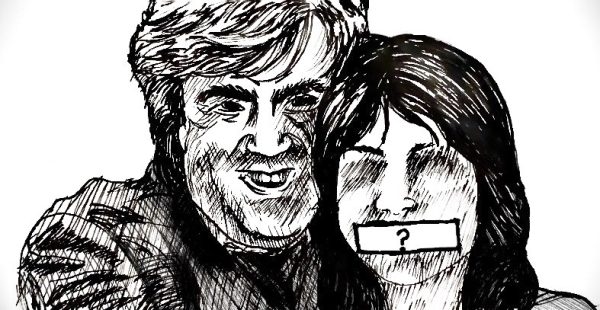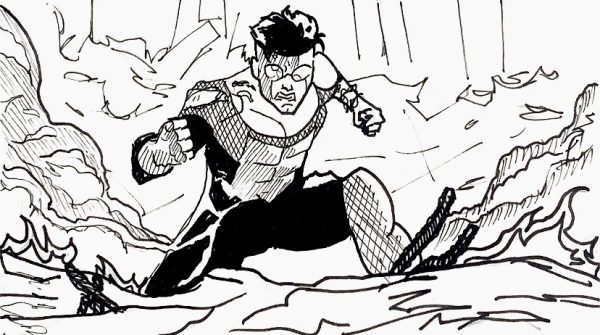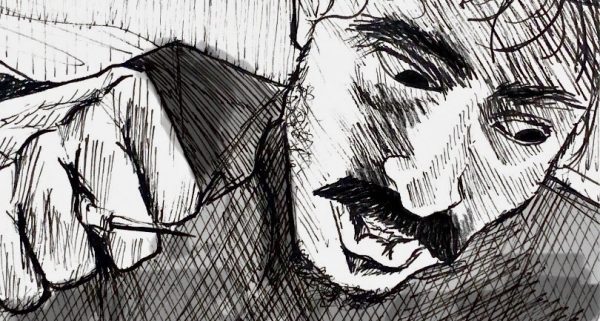Titane: “Creatively macabre, darkly funny and surprisingly moving”
“Titane” is the latest body horror film from French director Julia Ducournau. It premiered at this year’s Cannes Film Festival and won the Palme d’Or, the most prestigious award of the festival (previous winners include Joon-ho Bong’s “Parasite” and Quentin Tarantino’s “Pulp Fiction”). The film follows Alexia (played by Agathe Rouselle), a young woman fitted with a titanium plate in her skull after a car accident that left her with a bizarre obsession with cars; meanwhile, her story brings her to Vincent, a tortured man who is mourning his son’s disappearance 10 years prior while also trying to retain the semblance of strength left in his aging body.
That plot synopsis is the best thing I can write to convey the premise of the film without giving away its many twists and turns. With that being said, I think that this is, as of now, the best film I’ve seen all year. But in order for me to explain why I adore this movie so much, I’ll have to get into spoilers, so if you can handle really gross and violent content, then I’d recommend that you give the film a chance. It’s pretty well-shot, the lead performances are both pretty fantastic (especially from Agathe Rouselle), and the disturbing and violent moments are strikingly effective and hard to watch. My only real issue would be that some of the digital effects look pretty fake, which can probably be attributed to its relatively small budget of €5.7 million. In spite of that, I’d say that “Titane” is a bizarre masterpiece.
SPOILER WARNING for “Titane”
Okay, so Alexia is a showgirl at car shows who moonlights as a sociopathic serial killer, and also, she has sex with a car and gets pregnant, thus the body horror of the film. After a failed murder of a whole group of people, she decides to burn down her home (with her parents inside) and go into hiding. Once she sees that Vincent’s son is still missing and notices a visualization of what he should look like in the present-day, she decides to change her appearance and pretend to be Vincent’s son Adrien. In spite of her cutting her hair, breaking her nose and taping down her breasts and stomach, she might have been caught if it wasn’t for Vincent refusing to do a DNA test. While they are together, Alexia starts to genuinely care about Vincent as her pregnancy is tearing her apart from the inside. By the end of the film, Vincent finds out that Alexia is not his son, but he still decides to take care of her anyway, showing that he was alone and needed somebody to care for. The film ends with Alexia giving birth to her child but dying in the process; Vincent mourns for Alexia before holding the baby (which appears to have a titanium spine) and comforting it.
So yeah, this movie is the textbook definition of “batshit insane,” but in spite of the film’s weirdness, there is a lot that the film is trying to say. Underneath all of the body horror and car fucking, there’s a film about gender, sexuality, family, mortality and trauma.
The theme of mortality is shown in both Alexia and Vincent as parallels. While Alexia is literally being torn apart by the metallic child inside of her, Vincent keeps injecting himself with steroids in order to retain his muscular physique. In a sense, their shared fear of deterioration makes them want to take care of each other.
Another big theme that the film tackles is the idea of family. After Vincent’s son went missing, he had to be alone for the next 10 years. So when “Adrien” is found, Vincent’s insistence against the police doing a DNA test just shows that he wants to believe that his son is back, no matter what. Even at the point when he discovers Alexia’s identity, he still says that no matter what, she is “his son.” Plus, Alexia has a deeply strained relationship with her parents, possibly due to some implied abuse at the hands of her father. This leads to her being most withdrawn from other people, including Vincent; but after a while, she does start to form a genuine bond with him.
The film has a lot going on, and that includes topics that I cannot fully expand on until I watch the film a few more times, if I can stomach some of the violence. I’d say that, aside from nitpicks, Julia Ducournau’s latest film is a creatively macabre, darkly funny and surprisingly moving work of body horror.
Rating: 10/10

Hey guys! My name is Om Dighe, and I'm an arts columnist specializing mainly in movies, television and video games. I'm from Spring, Texas, and I'm a...

I'm a senior Computer Science major and a Classical Studies minor from Newton, North Carolina with a passion for art. I also work at the Center for Experiential...











